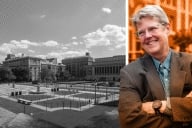You have /5 articles left.
Sign up for a free account or log in.
Since the economic downturn, many experts on the academic work force have worried that professors will delay retirement (given that their investment accounts took hits), and that an already-tight job market will get even tighter.
A new study takes more of a long-term view, but ends up confirming those fears. Examining trends at a large private university from 1981 to 2009, the study finds faculty members are likely to take much longer to retire. And unlike the more recent studies focused on the impact of the economic downturn, this study covers time periods in which retirement accounts would have been up and down several times. The dates in the study come before and after 1993, the last year in which colleges and universities were permitted to enforce a mandatory retirement age of 70. (An abstract of the study appears here. The paper, by Sharon L. Weinberg and Marc A. Scott of New York University, is in Educational Researcher.)
While Weinberg and Scott stress that they have studied data only for one university (and urge similar research at other institutions), they also suggest that the logic behind lifting mandatory retirement for higher education was flawed. Most other employers were barred by law in 1986 from using mandatory retirement, but colleges were given an exemption for a while, based on concerns that delays in retirement would make it difficult for colleges to hire people in emerging disciplines, and to diversify their faculties. But Weinberg and Scott note that these arguments became considerably weaker when the National Research Council issued a study in 1991 predicting that those things would not happen.
"At most colleges and universities, few tenured faculty would continue working past age 70 if mandatory retirement is eliminated," says the NRC report.
At the university studied, that was decidedly not the case. Among the findings were that while 11 percent of faculty members at this university during the era of mandatory retirement worked after age 70 (with special arrangements), 60 percent of faculty members now work beyond the age of 70, and 15 percent retire at the age of 80 or older.
"This is a dramatic shift in retirement behavior, one that was not forecast by the NRC committee," the authors write.
The paper also finds evidence that the faculty members most likely to retire are those who can do meaningful work (and be well-compensated for doing so) outside of academe. The university studied is divided into various schools, and the authors found that the retirement rates changed, post-mandatory retirement, at some of the schools, but not others.
The schools where faculty members were less likely to keep their professorial positions after 70 were "are all highly esteemed professional schools with strong ties to their high-paying fields of professional practice. As such, faculty in these three schools are afforded many opportunities to engage in external consulting and in other forms of affiliation with the practice side of their health care, legal, or business professions. As a result, in addition to having the capacity to increase their compensation beyond their base salaries while actively employed as faculty members, faculty in these three schools have opportunities for gainful employment following retirement."
Further, the divisions where faculty members were staying around well past 70 featured professors in the humanities, arts, natural and physical sciences and education, among others. Not only did these faculty members have fewer opportunities outside the university, but their salaries over the years were "substantially lower" than those of their colleagues in professional schools. As a result, the authors write, "it is likely that the amounts set aside in the retirement plans of faculty .. are lower."
Weinberg and Scott recommend that colleges consider a range of inducements for faculty members to retire. But based on the university they studied, they suggest that campus leaders may also need to accept that many professors will be there well into their 70s or 80s and think about job duty changes, rather than just waiting for them to retire.
"[C]onsideration should be given to developing programs to encourage senior faculty who are not otherwise as fully engaged in research and grant-writing as they were in earlier years to focus their activities on classroom teaching, advising undergraduates and graduates, and mentoring junior faculty," they write. "These efforts may not only serve to avoid or reduce the costs of pre-retirement packages but also may serve to meet the increased demands for improved teaching, advising, and mentoring without having to hire additional faculty or otherwise expend additional resources."




